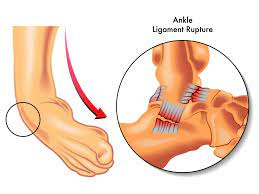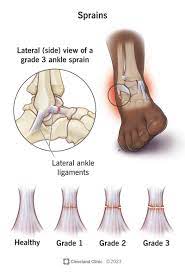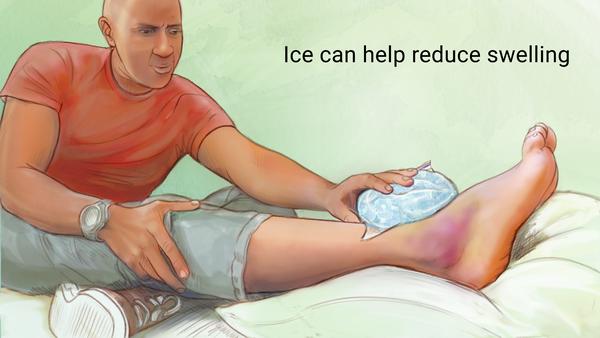Ankle Twist Treatment, Prevention, and Home Remedies
Learn about ankle twist treatment, prevention, and home remedies for athletes, kids, seniors, and more
Table of Contents
- Ankle Twist Treatment for Athletes
- Ankle Twist Treatment for Kids
- Ankle Twist Treatment for Seniors
- Ankle Twist Treatment Without a Doctor
- Ankle Twist Treatment at Night
- Ankle Twist Exercises for Athletes
- Ankle Twist Brace for Running
- Ankle Twist Prevention for Basketball
- Sprained Ankle Home Remedies
- Twisted Ankle Causes
- Ankle Injury Pain Relief
- Ankle Pain and Swelling
Ankle Twist Treatment for Athletes
If you're an athlete who has suffered from an ankle twist, it's important to seek treatment as soon as possible to avoid exacerbating the injury.
The first step in treatment is to rest, ice, compress, and elevate the affected ankle. You may also need to take nonsteroidal anti-inflammatory drugs (NSAIDs) to reduce pain and swelling.
In addition, physical therapy exercises can help to restore strength and flexibility in the ankle, and prevent future injuries.
Ankle Twist Treatment for Kids
For kids who suffer from an ankle twist, the treatment will depend on the severity of the injury. Minor twists can usually be treated with rest, ice, compression, and elevation. More severe injuries may require immobilization with a cast or a walking boot. In any case, it's important for kids to get medical attention as soon as possible.
Ankle Twist Treatment for Seniors
For seniors, ankle twists can be especially dangerous, as they can lead to falls and other serious injuries. Treatment may include rest, ice, compression, and elevation, as well as physical therapy exercises to restore strength and flexibility in the ankle.
Ankle Twist Treatment Without a Doctor
If you're unable to see a doctor, there are still steps you can take to treat an ankle twist at home. The first is to rest, ice, compress, and elevate the affected ankle. You may also want to take NSAIDs to reduce pain and swelling.
If the injury doesn't improve after a few days, or if it gets worse, it's important to seek medical attention.
Ankle Twist Treatment at Night
To treat an ankle twist at night, it's important to keep the affected ankle elevated while you sleep. You can also use ice or a cold compress to reduce pain and swelling. If necessary, you can take NSAIDs before bed to reduce pain.
Ankle Twist Exercises for Athletes
Physical therapy exercises can help to restore strength and flexibility in the ankle after an ankle twist. Some exercises you may want to try include ankle circles, resistance band exercises, and calf raises.
Ankle Twist Brace for Running
If you want to prevent future ankle twists while running, you may want to consider wearing an ankle brace. Ankle braces can provide support and stability to the ankle, and help to prevent re-injury.
Ankle Twist Prevention for Basketball
There are several steps you can take to prevent ankle twists while playing basketball. These include wearing proper footwear that provides support and traction, warming up before playing, and practicing proper jumping and landing techniques.
Sprained Ankle Home Remedies
There are several home remedies you can try to treat a sprained ankle, including resting, icing, compressing, and elevating the affected ankle, taking NSAIDs to reduce pain and swelling, and using essential oils or herbs to reduce inflammation.
Twisted Ankle Causes
Ankle twists can be caused by a variety of factors, including poor footwear, uneven surfaces, and improper jumping and landing techniques. They can also be caused by weakened muscles and ligaments in the ankle, or by underlying medical conditions such as arthritis.
Ankle Injury Pain Relief
To reduce pain from an ankle injury, you can try resting, icing, compressing, and elevating the affected ankle. You can also take NSAIDs to reduce pain and swelling. For more severe injuries, your doctor may prescribe pain medication or recommend physical therapy.
Ankle Pain and Swelling
Ankle pain and swelling are common symptoms of an ankle twist. To reduce these symptoms, you can try resting, icing, compressing, and elevating the affected ankle. You can also take NSAIDs to reduce pain and swelling.




